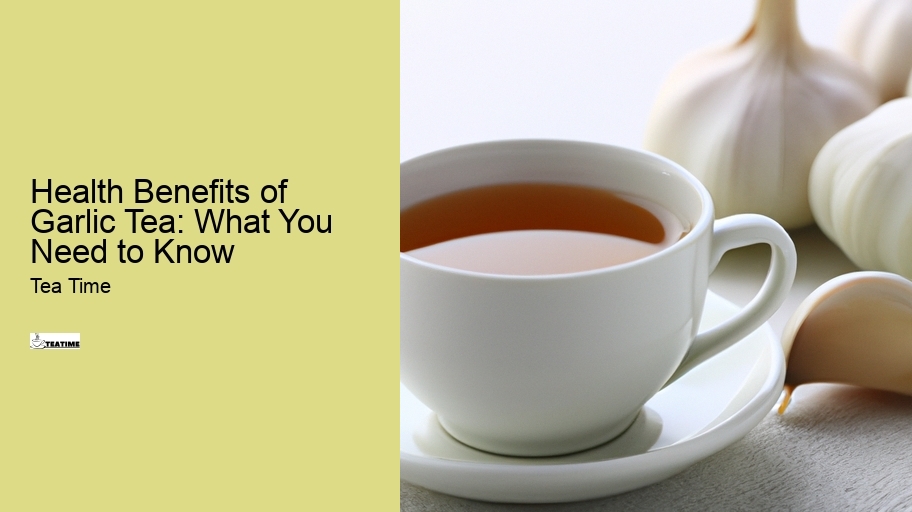

Storing homemade garlic tea properly is crucial for maintaining its freshness and health benefits. After brewing, if not consumed immediately, garlic tea should be cooled to room temperature. Avoid leaving it at room temperature for extended periods to prevent bacterial growth and loss of potency.
The best way to store garlic tea is in the refrigerator. Eco-Friendly Practices Detoxification Use an airtight container to preserve the flavor and prevent absorption of odors from other foods. This method keeps the tea fresh for up to 24 hours. Remember, garlic tea is best enjoyed fresh, so try to consume it within this timeframe.
For reheating, gently warm the tea but avoid boiling. Excessive heat can degrade some of the beneficial compounds in garlic. By following these simple storage and reheating guidelines, you can ensure your garlic tea remains a healthful and enjoyable beverage.
Garlic tea, steeped with the goodness of garlic, offers numerous nutritional benefits. It's a rich source of vitamins and minerals, particularly vitamin C and B6, essential for immune function and energy metabolism. The presence of manganese plays a vital role in bone health and metabolic processes.
The key compound in garlic, allicin, has potent health properties. It's known for its anti-inflammatory, antimicrobial, and antioxidant effects.
Regular consumption of garlic tea can be a simple way to incorporate these nutrients into your daily routine. Its natural composition makes it a healthful addition to any diet, offering a blend of essential nutrients with minimal calorie intake.
Serving garlic tea can be a delightful experience with the right accompaniments. To balance the robust flavor of the tea, consider adding a slice of lemon. The citrus not only adds a refreshing zest but also enhances the absorption of garlic's antioxidants. A spoonful of honey is another excellent addition, offering a natural sweetness and soothing properties.
For those who prefer savory flavors, incorporating herbs like mint or rosemary can add a refreshing twist. These herbs complement the pungent taste of garlic and add their own health benefits. Garlic tea can also be paired with light snacks, like unsalted nuts or crackers, making it a perfect beverage for a relaxing break.
Experimenting with these serving suggestions can elevate your garlic tea experience. Whether you prefer it sweet or savory, there are numerous ways to enjoy this healthful brew, making it a versatile and enjoyable part of your daily routine.
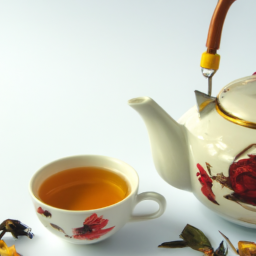
Garlic tea is increasingly recognized for its potential benefits in managing blood pressure.
Incorporating garlic tea into a regular diet may provide a natural way to support heart health. Its blood pressure-lowering effects are particularly beneficial for those at risk of hypertension. Sleep Quality Improvement However, it's important to note that garlic tea should complement, not replace, prescribed medications and a balanced diet.
Consultation with a healthcare professional is essential before using garlic tea as a part of a blood pressure management plan. They can provide guidance on how it can fit into your overall health strategy. This ensures that garlic tea is used safely and effectively in conjunction with other treatments.
One of the appealing aspects of garlic tea is its lack of caffeine, making it an excellent choice for those sensitive to stimulants or looking to reduce their caffeine intake. Being naturally caffeine-free, garlic tea can be enjoyed at any time of the day without the risk of disrupting sleep patterns or causing the jittery effects associated with caffeine.
This absence of caffeine also makes garlic tea a suitable option for a wide range of individuals, including those with certain health conditions or dietary restrictions. It allows the enjoyment of a warm, soothing beverage without the concerns that come with caffeine consumption.
For those transitioning from caffeinated drinks, garlic tea can serve as a healthy alternative. Cold and Flu Remedies It offers the comfort of a hot drink and the health benefits of garlic, all while being gentle on the body and free from the stimulating effects of caffeine.
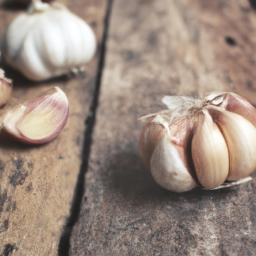
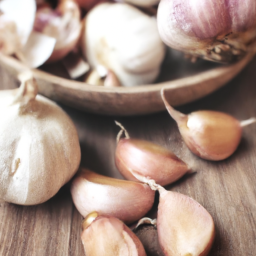
The use of garlic in herbal teas has a storied history, tracing back to ancient civilizations.
In many traditional medicines, garlic was considered a powerful remedy due to its natural antiseptic, antimicrobial, and immune-boosting qualities. Herbalists and healers often prescribed garlic tea as a treatment for respiratory ailments, digestive issues, and even to ward off plagues and infections.
Today, the historical use of garlic in herbal teas continues to be validated by modern research, which supports its health benefits. The enduring presence of garlic tea in both traditional and contemporary wellness practices speaks to its effectiveness as a natural, health-promoting beverage.
Pairing the right foods with garlic tea can enhance the overall culinary experience. For a harmonious combination, consider light and savory snacks such as crackers, cheese, or olives. These pairings can balance the robust flavor of the tea and make for a delightful snack or light meal.
For those with a sweet preference, pairing garlic tea with honey-infused bread or pastries can create an appealing contrast. The sweetness of the honey complements the pungent taste of the garlic, offering a unique flavor experience. Fresh fruits like apples or pears can also be a refreshing accompaniment.
Experimenting with different food pairings allows for a range of culinary explorations with garlic tea.
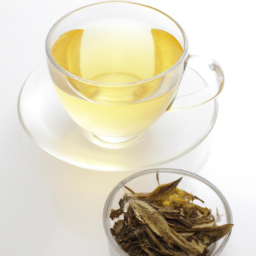
Garlic tea might aid in weight loss as part of a balanced diet and healthy lifestyle. Garlic can boost metabolism and help in regulating appetite, but it should not be relied on as a sole method for weight loss.
It's generally recommended to drink garlic tea earlier in the day. For some, garlic tea can be stimulating and might interfere with sleep if consumed right before bed. However, individual reactions can vary, so you may need to experiment to see how it affects your sleep.
To make garlic tea, start by peeling and lightly crushing 2-3 cloves of fresh garlic to release their oils. Steep the crushed cloves in a cup of hot water for about 5-10 minutes. Strain the garlic and add lemon or honey to taste, if desired. Adjust the amount of garlic and steeping time according to your taste preference.
Garlic tea is generally well-tolerated, but in some cases, it can cause side effects such as bad breath, body odor, an upset stomach, or heartburn, especially when consumed in large quantities. It's advised to start with a small amount to see how your body reacts.